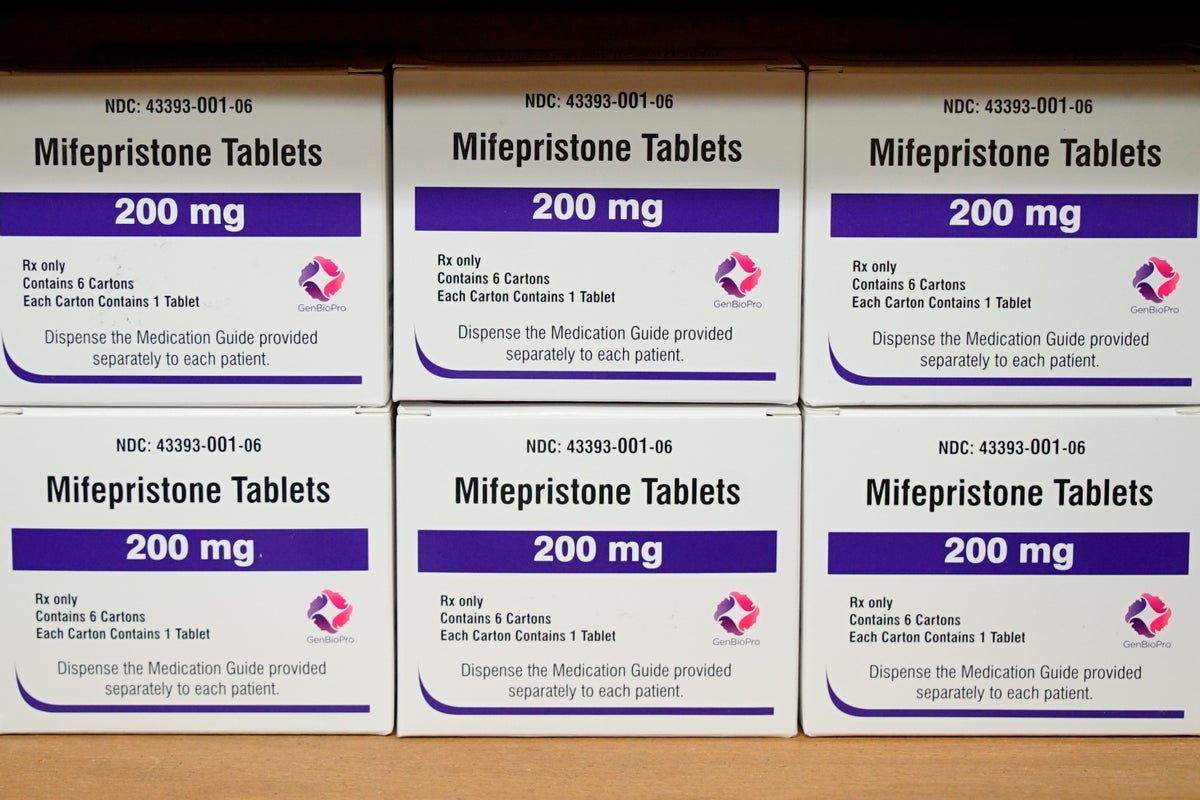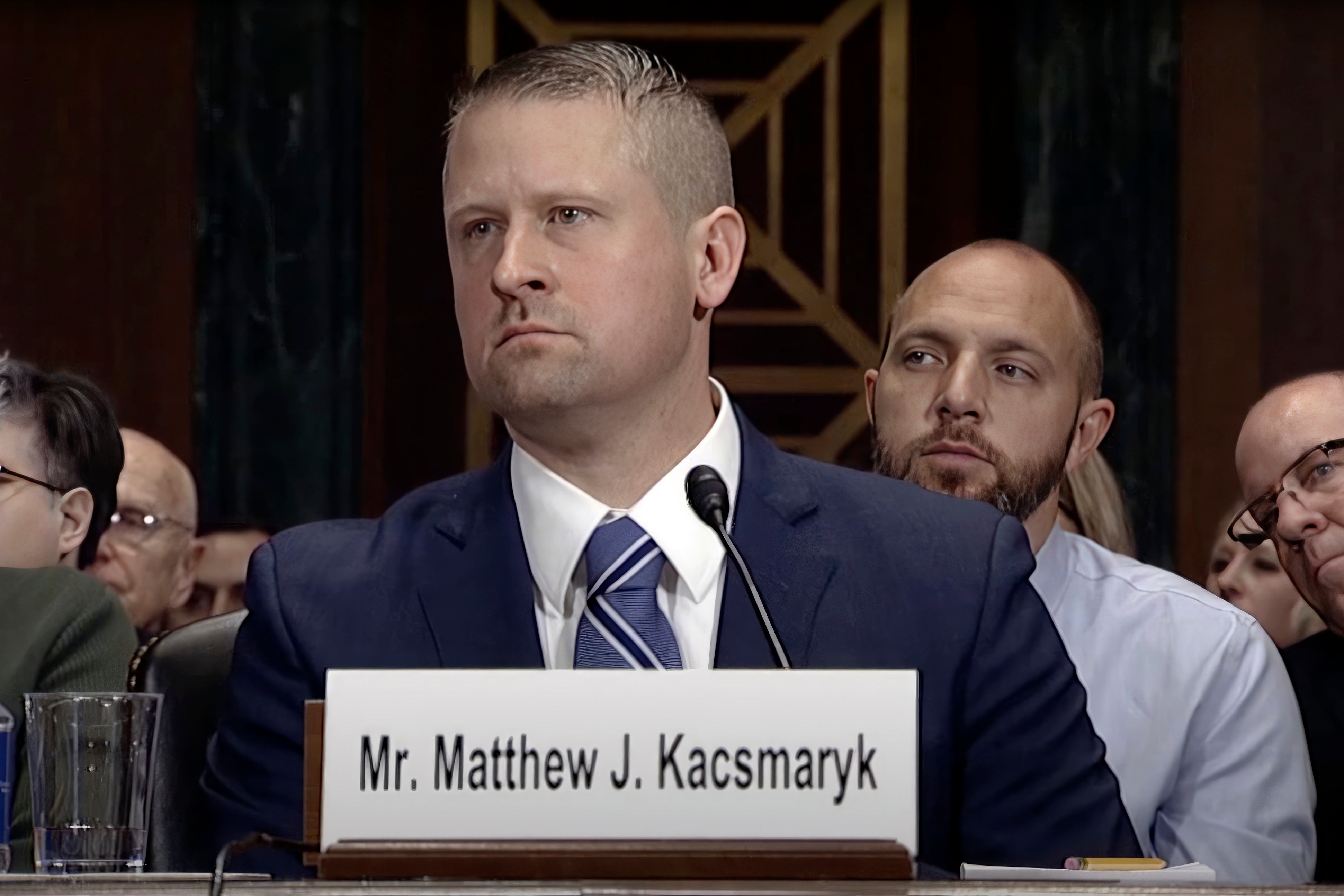
A commonly used abortion drug used for more than half of all abortions in the US can no longer be dispensed, according to a federal court ruling from a Texas judge appointed by Donald Trump.
Mifepristone, one of two drugs in a two-drug protocol for medication abortion, was approved for use by the US Food and Drug Administration more than two decades ago. But a lawsuit filed by an influential right-wing legal group and anti-abortion activists has sought to revoke that approval as part of a years-long campaign to outlaw abortion nationwide.
US District Judge Matthew Kacsmaryk, who has a history of right-wing activism, determined that the FDA’s initial authorization of the drug was improper and has suspended its approval, which will take effect in seven days unless a higher court intervenes. The US Department of Justice is expected to appeal the decision.
But in a separate ruling in Washington state, a federal judge has ruled that the FDA cannot change the status quo when it comes to mifepristone’s approval, setting up competing decisions on a critical abortion drug and the future of abortion access after the US Supreme Court’s decision to revoke a constitutional right to abortion care in Dobbs v Jackson Women’s Health Organization last year.
A ruling to eliminate access to mifepristone will have a dramatic impact on abortion care in a post-Dobbs landscape where access to care already is fragmented by patchwork, state-by-state regulations or criminal statutes and stretched-thin resources.
The decision in Texas comes after a hearing in Amarillo that lasted more than four hours on 15 March.
Erik Baptist, senior counsel for right-wing legal group Alliance Defending Freedom, told the court that removing mifepristone from the market “would restore proper policing power to the states,” echoing the group’s argument before the Supreme Court in its challenge to overturn Roe v Wade last year.
But abortion rights advocates warn that losing mifepristone, even temporarily, will significantly disrupt access to medication abortion nationwide, even in states where access to care is legally protected, and jeopardise reproductive health decisions for millions of Americans.
The impact will be particularly acute in 10 states, according to Guttmacher Institute.

Mifepristone is one of a two-drug protocol for medication abortion, a procedure that accounts for more than half of all abortions nationwide.
The drug was approved for use by the FDA in most cases up to 10 weeks of pregnancy in 2000. Multiple studies have determined they are overwhelmingly safe and effective, and have been used in roughly 54 per cent of all abortions. A vast majority of abortions occur within the first nine weeks. In 2019, nearly 93 per cent of all abortions were performed before the 13th week.
The challenge comes from a coalition of anti-abortion advocates under the Alliance for Hippocratic Medicine, with support from dozens of Republican elected officials and the Alliance for Defending Freedom.
The parties asked the judge for a preliminary injunction to take mifepristone off the market. The lawsuit also challenges recent federal actions that made the drug available through telemedicine prescriptions that patients can receive by mail or pick up at a pharmacy.
The Alliance Defending Freedom claimed in a filing that the FDA does not have authority to approve the drug, which the plaintiffs claim is “dangerous” and “has harmed countless women and girls.”
The plaintiffs have been accused of deliberately choosing to file a challenge in a court system that would be sympathetic to them, with any potential appeal landing in the right-wing Fifth Circuit Court of Appeals in Louisiana before an appeal before the conservative supermajority on the Supreme Court.
Critics have condemned what has become a right-wing judicial pipeline exploiting a Texas loophole that has allowed several high-profile cases led by GOP officials and right-wing legal groups to advance with favourable rulings.
The case was filed in Amarillo, where the nearest abortion provider is at least several hours away and not even in Texas, while the Alliance for Hippocratic Medicine is based in Tennessee. A group of 22 Republican attorneys general and 67 congressional Republicans have also joined the effort.
Judge Kacsmaryk previously served as a counsel for the conservative Christian group First Liberty Counsel before he was nominated by then-President Trump in 2018.
“Plaintiffs’ and other litigants’ ongoing tactic of filing many of their lawsuits against the federal government in single-judge divisions, or divisions where they are otherwise almost always guaranteed to procure a particular judge, undermines public confidence in the administration of justice,” Justice Department attorneys wrote in court filings criticising “judge-shopping” efforts in the mifepristone case.
In 2021, the FDA permanently lifted the in-person requirement for medication abortion prescriptions, allowing patients to access the drugs via telehealth appointments and online pharmacies so patients can take the drugs from the comfort of their homes.
After the Supreme Court’s decision in the Dobbs case, anti-abortion state legislators filed dozens of bills to restrict the availability and distribution of abortion drugs, or have sought to ban them altogether.
Last month, Wyoming’s Republican Governor Mark Gordon signed a bill into law prohibiting the prescription of abortion drugs in the state, the first to effectively outlaw the medication. That law will take effect from 1 July and make it illegal to “prescribe, dispense, distribute, sell or use any drug for the purpose of procuring or performing an abortion”.
At least 19 states have restricted access to the drug, but a ruling from Judge Kacsmaryk could jeopardise access in the 31 states where medication abortion is already legally protected, or could reverse federal guidance and force patients in protected states to receive the drug only during in-person visits.
Abortion rights advocates have pointed out providers could rely on a misoprostol-only regimen for medication abortion.
This is a developing story







